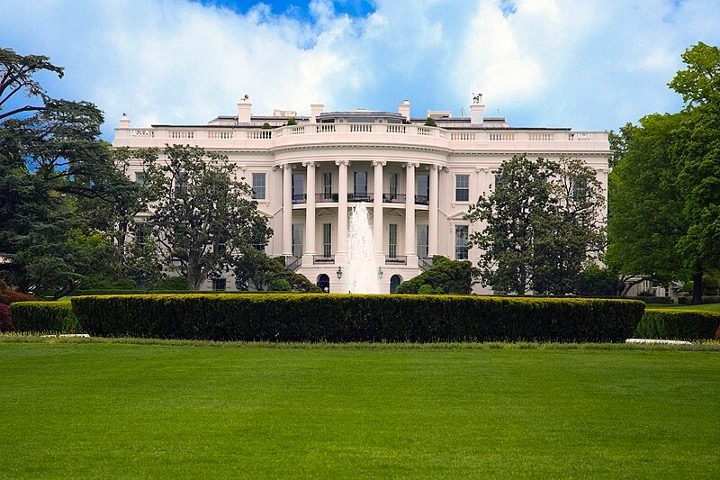
With government funding set to expire on September 30, the White House accused House Republicans on Tuesday of ignoring their bipartisan budget agreement that was passed earlier this year by “advancing extreme, partisan appropriations bills that break their public promise and gut key investments in the American people.”
The White House released a statement sharing the Office of Management and Budget’s 51 fact sheets highlighting the potential devastating impacts on states and the District of Columbia that proposed House Republican appropriations bills would cause if passed.
“House Republicans’ bills would raise a host of costs for families, hurt students, seniors, and rural communities, slash support for law enforcement, and undermine our economy — while Congressional Republicans fight separately for multimillionaires and big corporations to get massive tax cuts,” the statement declared.
According to the statement, “House Republicans claim these cuts are about fiscal responsibility — but they aren’t. Not only would their bills add at least $100 billion to deficits over 10 years by making it easier for the wealthy and big corporations to cheat on their taxes, but House Republicans are separately pushing corporate tax giveaways that would cost over $500 billion if made permanent — including at least $30 billion in retroactive tax breaks for investments companies made last year. These retroactive tax cuts alone would erase the savings from their deep cuts to education, health, and labor programs.”
The White House targeted House Republicans over the proposed “draconian” tax cuts, adding that “Republicans are also fighting to rescind vital funding that is helping make our tax code fairer, rebuilding America’s infrastructure, lowering costs for families, and tackling the climate crisis.”
The state “fact sheets” listed “some of the most harmful elements of House Republicans’ appropriations bills,” demonstrating the supposed dire consequences of the proposed cuts.
However, those draconian cuts are far from reality, as a government shutdown is more likely than any fiscal-year budget appropriations agreement, with a hard-line stance being firmly held by the House Freedom Caucus. They are reportedly “openly threatening to leverage a shutdown if a continuing resolution does not include deep spending cuts or other demands, such as more security on the southern border.”
House Speaker Kevin McCarthy (R-Calif.) needs to find a way to appease the Freedom Caucus members to avert a budget crisis — and save his own leadership position. That task won’t be easy as the House has yet to pass any of the dozen appropriations bills it’s supposed to enact every year.
USA Today shared that “hard-right lawmakers, which includes conservatives not part of the Freedom Caucus, such as Rep. Marjorie Taylor Greene, R-Ga., are making heavy asks of House Speaker Kevin McCarthy, R-Calif. In exchange for the requests, they’ll hypothetically help avert a shutdown.”
The paper continued:
Greene said at a town hall that she would not vote to fund the government if the House does not hold a vote on an impeachment inquiry against President Joe Biden, a prospect that some moderate Republicans have balked at.
Rep. Ralph Norman, R-S.C., downplayed the effects of a shutdown in a post on X, formerly Twitter, last week: “If a temporary shutdown is more concerning to you than our $2 trillion deficit and $33 trillion national debt, I’d politely suggest you’re part of the problem.”
This year’s fight over a fiscal-year budget agreement is normal and not necessarily part of the current divisive politics of the upcoming election cycle. The Pew Research Center stated that “Congress’ chronic inability to follow its own appropriations process is hardly new. In fact, in the nearly five decades that the current system for budgeting and spending tax dollars has been in place, Congress has passed all its required appropriations measures on time only four times: fiscal 1977 (the first full fiscal year under the current system), 1989, 1995 and 1997. And even those last three times, Congress was late in passing the budget blueprint that, in theory at least, precedes the actual spending bills.”
The White House fact sheets are nothing more than scare tactics designed to paint House Republicans as breaking their earlier budget agreement and dishonoring their word. The results of not passing any of the appropriations measures or any continuing resolution will result in a government shutdown.
Pew stated:
Should the Oct. 1 deadline pass without either a new set of spending bills or a continuing resolution, operations considered nonessential would be forced to shut down. (That could include things like national parks and monuments, passport applications and military training exercises.) There have been five shutdowns since 1995, excluding a nine-hour funding gap (the interval between the expiration of one continuing resolution and the enactment of another) in the overnight hours of Feb. 8-9, 2018. The most recent such shutdown lasted 35 days, from Dec. 22, 2018, to Jan. 25, 2019.





